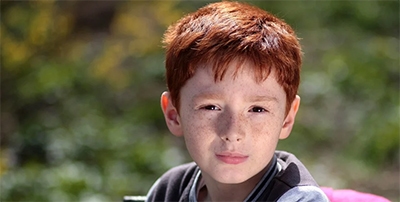Stuttering
Disfluencies
| Download this episode | Stuttering is a communication disorder in which the normal flow of speech is disrupted by frequent repetitions or prolongations of sounds, syllables or words or by an individual’s inability to start a word. It typically begins during childhood and, in some cases, can persist throughout an individual’s entire life. The disorder is characterized by disruptions in the production of speech sounds, identified by speech pathologists as “disfluencies.” Most speakers produce brief disfluencies in speech from time to time. For instance, some words are repeated and others are preceded by interjections such as “um.” Disfluencies are not necessarily problematic but they can impede communication when a speaker produces too many of them or does not resolve them promptly. Certain situations, such as speaking before a group of people, tend to make stuttering more severe, whereas other situations, such as singing, often improve fluency. | More than 3 million Americans suffer from the speech disorder known as stuttering. Stuttering affects individuals of all ages but occurs most frequently in young children between the ages of 2 and 6 who are developing language. Boys are three times more likely to stutter than girls. Most children, however, outgrow their stuttering, and it is estimated that less than one percent of adults stutter. Many individuals who stuttered have gone on to be successful in careers that required public speaking. Some of the more prominent stutterers included Winston Churchill, Marilyn Monroe, James Earl Jones and Bill Walton, as well as singers Carly Simon and Mel Tillis. The exact cause of stuttering remains to be determined. Recent studies suggest that genetic factors play a role in the disorder. It is thought that many, if not most, individuals who stutter inherit traits that predispose them to develop stuttering but the exact nature of these traits remains unclear at this time. | Stuttering among children is not as rare as many believe. Many children go through a stage of development when they stutter. Most children outgrow the problem without treatment but for some, the stuttering progresses from simple repetition of consonants and syllables to the repetition of words and phrases. Which children will develop persistent stuttering is very difficult for experts to predict. The exact cause of a child’s stuttering isn’t clear but despite what many may believe, the disorder is not heightened by psychological problems, stress or trauma. Neither does parenting style, although the parents’ reactions to their child’s stuttering may increase the child’s anxiety about it and affect the degree to which the problem persists. Parents should consult with a physician or speech pathologist if a child’s stuttering lasts more than six months, causes anxiety or emotional problems or affects the child’s ability to communicate at school or in social interactions. | Stuttering will inevitably affect a speaker’s ability to perform at least some of their daily activities. Some speakers may limit the extent to which they participate in certain activities. Such restrictions often relate to concern over how others might react to disfluent speech. Other speakers may attempt to conceal their stuttering from others by re-arranging the words in their intended sentence, pretending to forget what they wanted to say, or declining to speak. Still others may find that people exclude them from participation in certain activities because of stuttering. The impact of stuttering on daily life can be affected by how the speaker and others react to the disorder. When dealing with someone stuttering, refrain from making remarks like “Slow down,” “Take a breath,” or “Relax.” Such simplistic advice can be seen as demeaning and is not helpful. Let the person know by your manner and actions that you are listening to what he or she says, not how they say it. | There are a number of treatments available for stuttering. Any of the methods may improve stuttering to some degree, but there is no cure for it. Therapy, however, may help prevent developmental stuttering from becoming a life-long problem. A speech evaluation is recommended for children who stutter for more than six months or for those whose stuttering is accompanied by struggle behaviors. Developmental stuttering, which occurs in children who are in the process of developing speech and language, is often treated by educating parents about restructuring the child’s environment to reduce episodes of stuttering. Parents are encouraged to provide a relaxed setting that provides opportunities for the child to speak. Setting aside times when the child and parent can speak free of distractions is helpful. Parents should also avoid punishing the child for any disfluencies or asking the child to repeat words until they are spoken fluently.
Transcript
Affects young children
Transcript
Most outgrow the problem
Transcript
“Relax” doesn’t help
Transcript
No cure but many treatments
Transcript
